10 reasons why Facebook could be building the Matrix
Zuck's vast digital empire knows no bounds
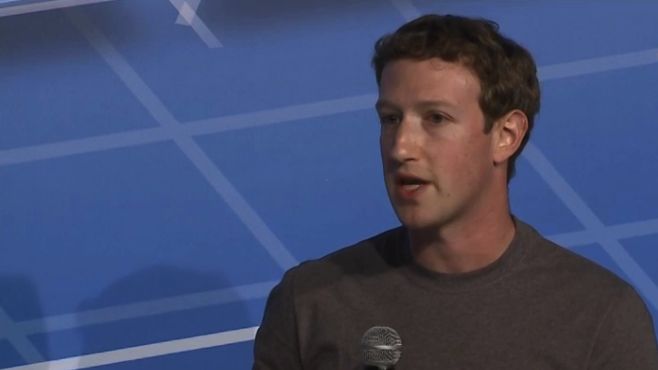
Introduction
Mark Zuckerberg wants more than just your face. He wants everything. It may have started out as a cute way to share messages and photos, but Facebook has grown to become a family of apps – WhatsApp, Instagram and Messenger. Now for phase two.
Facebook is increasingly becoming a primary news source, but in the next few years the former social network will become a major broadcaster, shopping magnate, personal data archivist, virtual reality creator and, for some, a major internet access provider.
Is Facebook trying to build an all-encompassing Matrix?
- Also check out: Facebook privacy and security tips
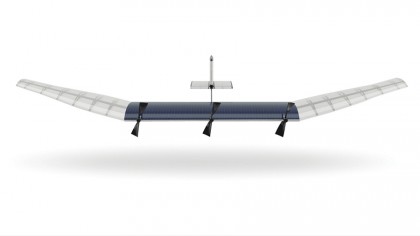
Aquila drones
If you want to attract billions of people to your apps and services, at some point you've got to admit the truth; the internet isn't finished. With four billion people around the globe still to get online, Facebook's Connectivity Lab wants to launch carbon fibre drones that beam Wi-Fi web access to areas that need it.
These solar-powered drones called Aquila are described by Zuckerberg as having "the wingspan of a Boeing 747, but weighing less than a car". The likelihood of Facebook actually getting this plan airborne anytime soon is unlikely, although Facebook's Internet.org plan to get the 'Next Five Billion' online is super-serious.
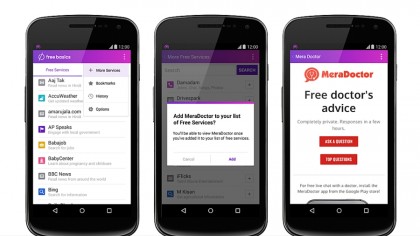
Free Basics: universal access?
Internet.org is a Facebook-led initiative to allow people in remote communities lacking digital infrastructure to access the internet on a basic level – but only via a 'walled garden' run by Facebook called Free Basics.
"Four billion people still do not have internet access, a fact that Facebook is trying to use to its advantage," says Owen Gill, Digital Marketing Executive at SEO services company Hallam Internet. Can Facebook pull it off? "To cover all these communities will be a big challenge and what's to say the likes of Google or Apple are not going to attempt something similar in the near future?" says Gill.
Others are vehemently opposed to Free Basics' walled garden and lack of support for encryption. "It takes blatant advantage of neglected communities and their lack of resources by depriving them of the choice of interacting with the world without being tracked, therefore obstructing them from freely choosing to keep their data private," says Chris Latterell, VP at Open-Xchange. "We should challenge Internet.org to openly communicate."

Artificial intelligence
Is this where Facebook displaces Google as humanity's search engine? If we all put what we are doing, when, where and with whom on Facebook – with photos and videos – then the platform can in theory act as a collective human brain.
That's the aim of Facebook's vastly ramped-up investments in artificial intelligence, which is using its social data lakes to help with machine learning. It includes the automatic recognition of people in photos, predicting what you want to see in your newsfeed, and automatic translations.
The delivery mechanism is a virtual assistant called M which works across Instagram, WhatsApp, and Messenger, as well as the Facebook app. "One of our goals for the next five to 10 years is to basically get better than human level at all of the primary human senses: vision, hearing, language, general cognition," said Zuckerberg to Fast Company last month. Whoa…
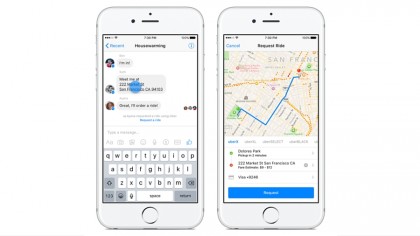
Messenger expands
Facebook wants your phone number. Over 800 million people already use Messenger, attracted by the app's ability to keep everything in the same place – i.e. Facebook. Video calling appeared in 2015, and just added to Messenger is Transportation, an Uber tie-up that lets you tap a car icon to request a ride, and follow the driver to you on a map. Soon it will be possible to buy airline tickets on Messenger, too. All this, and you don't even need a Facebook account.
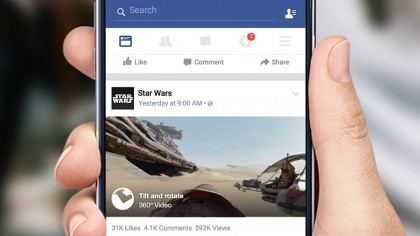
Real-time video and virtual reality
Facebook purchased Oculus VR for a cool couple of billion back in March 2014, but why? The whole point of Facebook is to make communicating between friends and family easier and more casual. "We read timeline posts and get envious when looking at our friends' holiday pictures, but Facebook hasn't yet offered a solution for live video communication on its own platform," says Gill. Not quite, but Periscope-style live video is exactly what Facebook is now testing.
That's reality covered. Next comes virtual reality. "Imagine sharing not just moments with your friends online, but entire experiences and adventures," wrote Zuckerberg when acquiring Oculus VR. "Imagine enjoying a court side seat at a game, studying in a classroom of students and teachers all over the world or consulting with a doctor face-to-face – just by putting on goggles in your home."

Freeze-ray
If you build a Matrix, where do you put it? Built on exabytes of personal data and adding to it constantly, Facebook is now deploying 100GB Blu-ray discs – known as Freeze-ray – from Panasonic into its vast data centres, with 300GB freeze-ray discs expected later this year. This is about archiving everything you've ever put on Facebook and making sure it's always accessible and constantly mined.
"We're seeing exponential growth in the number of photos and videos being uploaded to Facebook, and the work we've done with Panasonic is exciting because optical storage introduces a medium that is immutable, which helps ensure that people have long-term access to their digital memories," says Jason Taylor, PhD, VP of Infrastructure at Facebook. The endgame is a multi-petabyte cold storage archive system.
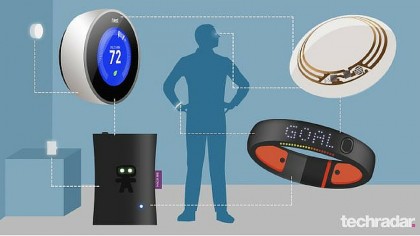
Timeline of Things
Facebook wants your data future, too. Today your timeline shows you cat videos and pictures of your friends' children. Tomorrow it will also let you adjust your smart thermostat from afar, and many other things besides.
So far it's a nebulous concept, but the numbers quoted for the Internet of Things (34 billion connected devices by 2020, global investment of $7.3 trillion – around £5.1 trillion, AU$10.6 trillion – by 2017) are so big that Facebook wants a slice. A big one.
It's already had Parse – which runs a cloud backend for app developers on Facebook – issue a software development kit that makes it easy to have an IoT device talk to Facebook. Will it work? It's a competitor to Apple's HomeKit and Google's Brillo, so there's no guarantee.
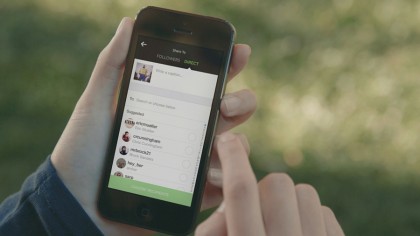
If social commerce and personalised marketing are the future, Facebook already owns the most important new platform; Instagram. After all, engagement on Instagram is seven times higher than on Facebook. "For those other platforms that show huge potential, such as Instagram, Facebook just seems to buy them," says Gill.
Not only has Facebook bought and integrated Instagram into its machine, but it's being super-aggressive on advertising, too, now offering the same Power Editor available for the core Facebook platform. Showing 40% year-on-year growth, Instagram is fast becoming a platform for curated glimpses into brands (okay, and the odd selfie).

Mobile retail
Although about 80% of Facebook users connect on their mobile, only 2% of all retail sales are via a smartphone. So why not just create mobile retail, too? If Instagram is Facebook promoting and curating brands in new creative ways, its main app's Pages area has recently been furnished with 'shop now' buttons.
Long rumoured to be after a slice of Amazon's business in the long-term, Facebook is currently testing a shopping page that lets its users buy products without ever leaving the Facebook app – much like clicking on links to news stories now takes you to a built-in browser. This one could be a slow-burner at first, but it could be massive eventually.

Will everyone one day be a 'Facebook slave'?
Facebook now has 1.19 billion monthly active users, and wants the Next Five Billion via Free Basics, too. At the rate its platforms are dominating, a Facebook-operated Matrix is on the cards.
"Many other platforms have tried to challenge Facebook and offer new products, but none have come close to obtaining the same number of users," says Gill. However, users aren't where the money is.
"Despite being the biggest social media platform, its main revenue stream is through selling digital advertising space, an area where it faces much stiffer competition with all the available networks for advertisers to use," says Gill. "In terms of a business needing to advertise on it, I think Facebook will need to show that the platform can provide a consistent return on investment, and not just be able to reach a gigantic audience."
Facebook wants to create and own the Matrix by dominating in all kinds of areas of digital life, and it may well achieve just that, but only if advertisers want it to. Just as society is only three meals away from revolution, if no-one liked or clicked on its adverts and sponsored content tonight, the Facebook Matrix dies tomorrow. Put that on your timeline…
Jamie is a freelance tech, travel and space journalist based in the UK. He’s been writing regularly for Techradar since it was launched in 2008 and also writes regularly for Forbes, The Telegraph, the South China Morning Post, Sky & Telescope and the Sky At Night magazine as well as other Future titles T3, Digital Camera World, All About Space and Space.com. He also edits two of his own websites, TravGear.com and WhenIsTheNextEclipse.com that reflect his obsession with travel gear and solar eclipse travel. He is the author of A Stargazing Program For Beginners (Springer, 2015),
Sign up for breaking news, reviews, opinion, top tech deals, and more.
You are now subscribed
Your newsletter sign-up was successful
